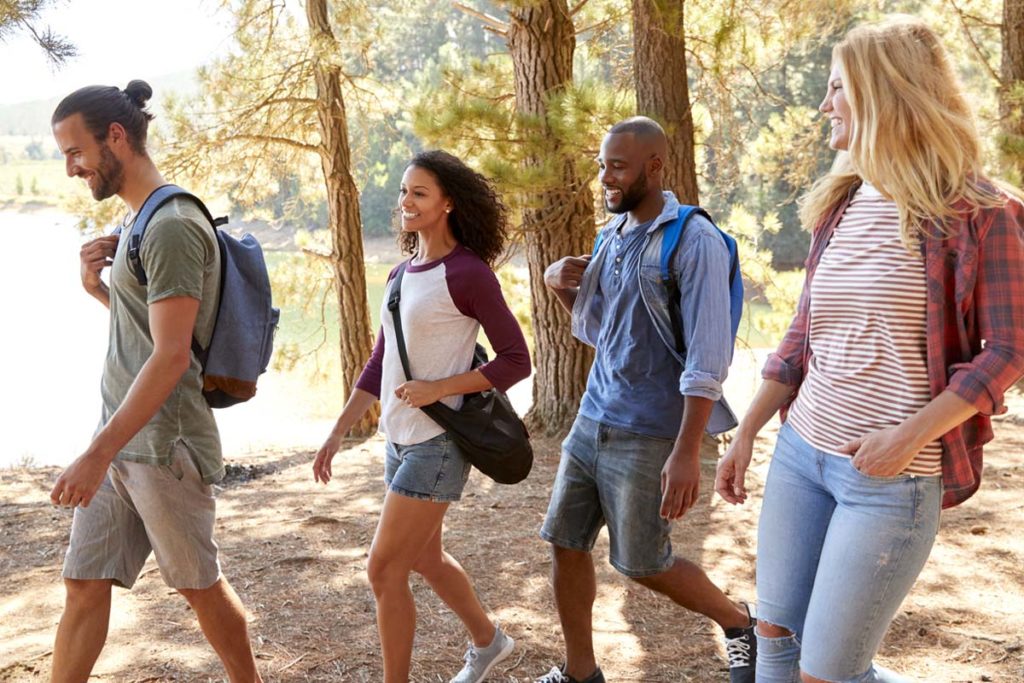Imagine embarking on one of the most challenging, and yet life-altering experiences of your life. For many, this represents those initial steps towards recovery, where it feels like you’re jumping off a cliff into the crystal blue waters below.
With some hesitation, you make that first call, and you may agree that residential treatment is right for you. But nothing can quite soothe that inner voice that is afraid of what the future might hold.
Not only does the success of treatment depend upon your decision to jump, but also upon your ability to swim and find your place among the community awaiting below. The task of treatment requires more from us than just that first initial jump. It asks us to take many small leaps of faith along the way, like opening up about what happened to us in the past and taking an honest look at the role we have to play in constructing a new future for ourselves.
One important consideration that plays a role in taking these steps is the aspects associated with gender and how this influences treatment. Many of the common methods used in residential substance use treatment were originally designed for men, omitting important cultural and societal factors specific to women.
Creating spaces for gender-specific healing allows for residential settings to incorporate these unique factors and needs into treatment, therefore providing holistic and comprehensive care.
Why Does Gender-Specific Treatment Matter?
Creating truly patient-centered care comes from recognizing the cultural and social factors that influence gender and incorporating them into the recovery process.
For women, this means:
- Acknowledging the socioeconomic differences between women and men
- Recognizing the role of relationships: women with substance use disorders are more likely to have a spouse with a substance use disorder, be victims of intimate partner violence (IPV) and have less support from family than men.
- Increasing awareness of female reproductive health and addressing related health concerns
- Directing attention to parental and caretaking roles
- Recognizing ascribed roles and gender expectations that affect societal attitudes
- Maintaining a trauma-informed perspective: Women are more likely to have a history of trauma including childhood abuse and IPV. A trauma-informed perspective includes empowering women who are survivors of trauma, including offering choice and autonomy whenever possible and respecting personal boundaries.
Treating Trauma
A gender-specific treatment environment allows for a space that is safer to process, discuss, and heal from trauma. Trauma is highly correlated with substance use and is an important element of treatment.
- For men, trauma is often not talked about, dismissed, and can be associated with weakness. Men may be less likely to share their trauma and abuse they’ve experienced with women present. A single-gender, trauma-informed environment can provide the safety and space to discuss sensitive topics.
- For women who have experienced trauma, often their perpetrators are men, and some feel they cannot discuss their trauma with men present. It could also be triggering and retraumatizing if they feel pressured to open up in an environment that feels unsafe.
Individuals often feel more comfortable opening up with people of the same gender, allowing men and women to more easily share their feelings and experiences. This vulnerability creates a sense of trust, belonging, and closer peer relationships that strengthen one’s recovery network. By establishing a recovery environment that feels safe, individuals can feel empowered to flourish in their recovery.
Gender-Specific Treatment at The Ranch Tennessee
Gender-specific treatment recognizes the unique needs, values, and socio-cultural factors associated with one’s gender, therefore offering more specialized and tailored therapy.
At The Ranch, we offer gender-specific men’s alcohol rehab programs and women’s rehab programs in Tennessee that can help you on your journey towards sobriety. Don’t hesitate to reach out to learn more about our gender-specific programs. As we learn more about your story, we’ll find the one that’s right for you.
We can help you get past the addiction and back to a life you feel good about. Call us today 1.844.876.7680




